Keywords: Children In Detention
There are more than 200 results, only the first 200 are displayed here.
-
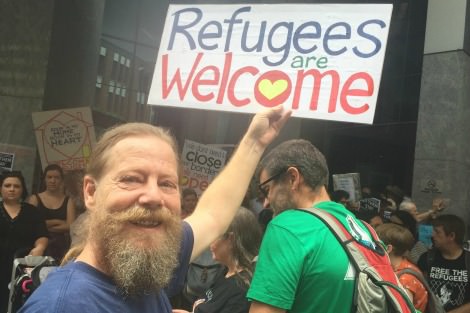
AUSTRALIA
- Andrew Hamilton
- 18 February 2016
18 Comments
It is common for people to break the law. People fail to move on when instructed by police, evade tax, drive too fast, keep silent about abuse, trespass on military facilities, and drive when drunk. Many people assert that it is never right to break a law duly enacted by the government. From this principle it follows that anyone offering sanctuary to people who seek protection in Australia is acting wrongly. This blanket condemnation of law breaking runs against our inherited moral tradition.
READ MORE 
-
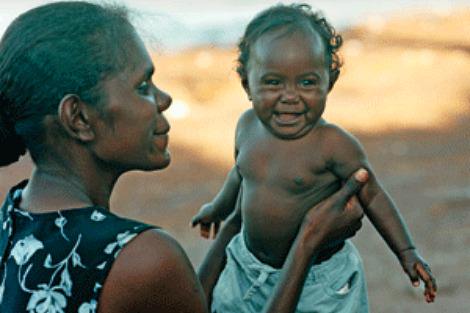
AUSTRALIA
- Myrna Tonkinson
- 16 February 2016
3 Comments
Last week, Malcolm Turnbull presented the eighth annual Prime Minister's Report on the government's Close the Gap campaign. The Close the Gap Campaign steering committee also released its 2016 progress and priorities report. While the reports identify modest gains, overall the gaps remain wide the words 'target not met' recur throughout. The results are disheartening but should strengthen the resolve of all concerned to set realistic goals, with consultation at local levels.
READ MORE 
-
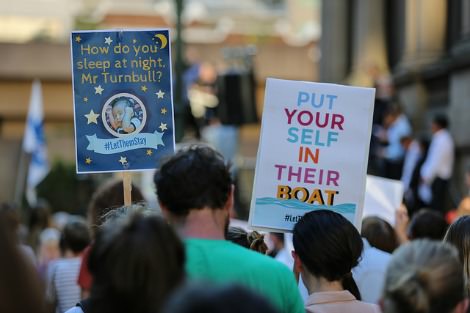
AUSTRALIA
- Somayra Ismailjee
- 12 February 2016
8 Comments
Since the first churches offered sanctuary to the refugees facing deportation to Nauru, a steady stream of voices have joined the call for compassion. As a political language, compassion is itself a reclamation of power. Extending safety, resources, or even a mere welcome to people in need proves that we have something to give. Strength is embodied by a capacity to aid and assist, rather than in cruelty. Empathy, care and compassion appeal to us on a level of emotion that runs deeper than mere rhetoric.
READ MORE 
-
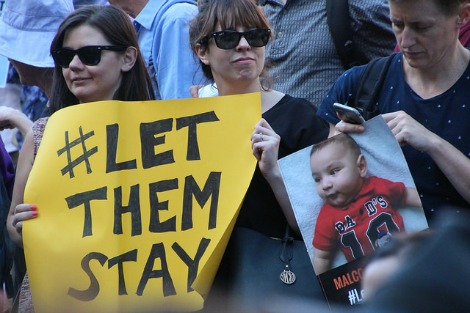
AUSTRALIA
- Andrew Hamilton
- 11 February 2016
15 Comments
The High Court decision on detention in Nauru came down just before the Christian season of Lent. It left the government free and determined to deport many young mothers and children to Nauru. For the mothers and children deportation will bring new trauma with renewed threat to their already precarious mental health. For the Australian public it again makes us ask what brutality, even to children, we are ready to tolerate. The savagery of this treatment is a suitable subject for Lenten reflection.
READ MORE 
-
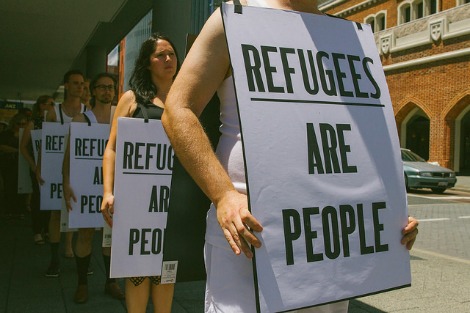
AUSTRALIA
- Kerry Murphy
- 05 February 2016
6 Comments
The practice of governments using the Parliament to change the law in order to win court cases is unfair, as only one party to a court case has the power to do this. The M68 case decided on Wednesday, which challenged the detention and transfer to Nauru of asylum seekers, was effectively won by the government because they changed the law retrospectively to make sure they would win. No retrospective fix will be possible for people who fled persecution only to face a punitive and hostile policy.
READ MORE 
-
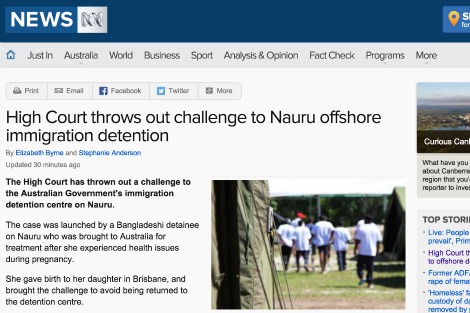
AUSTRALIA
- Frank Brennan
- 04 February 2016
24 Comments
Following Wednesday's High Court decision, the moral depravity of Australian funded offshore detention of asylum seekers, including children, is to continue. There is no joy to be found in our High Court applying a Constitution even more bereft of human rights protections than that of Nauru. It's time for our politicians to address the political and moral question: what purpose is actually served by sending this mum and her baby back to Nauru, when the boats have already stopped and will stay stop?
READ MORE 
-

AUSTRALIA
- Andrew Hamilton
- 21 January 2016
7 Comments
In our response to the forced movement of peoples we must recognise that our national identity is not built primarily on uniformity of religion and race but on adherence to the values that are enshrined in our social institutions. We must also recognise the way in which our own prejudices and fears affect the judgments and proposals we make, and exercise a proper scepticism about making quick judgments and drawing universal conclusions from particular events such as those in Cologne.
READ MORE 
-
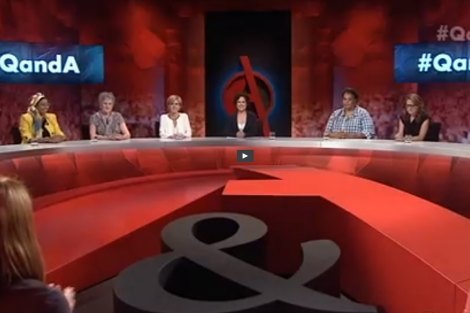
MEDIA
- Moira Rayner
- 13 January 2016
5 Comments
Annabel Crabb chaired it all really well, but the next day I realised that not only our Foreign Minister, but not one panelist, got one question about their extraordinary achievements. Bishop was managing partner of a big law firm. She has unique experiences and must have views on the world's problems and their impact on Australia. But nobody asked.
READ MORE 
-
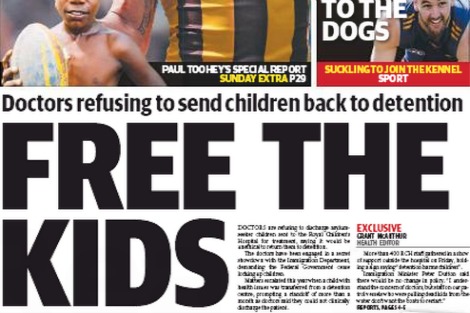
AUSTRALIA
- Justin Glyn
- 11 January 2016
4 Comments
Health care professionals at the Royal Melbourne Children's Hospital have begun to do what could not be achieved by reports from the UN Special Rapporteur on Torture and Australia's Human Rights Commission. The doctors and staff are refusing to release children they treat back to the detention which caused their problems in the first place. By this brave act has begun the slow task of pouring daylight (always the best antiseptic) into this gaping wound in Australian society.
READ MORE 
-
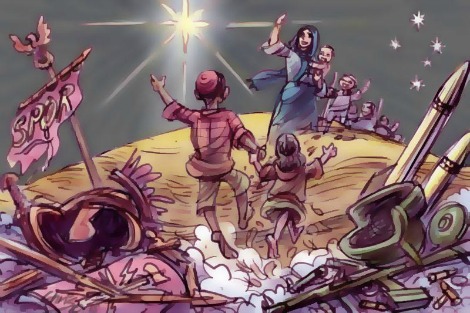
AUSTRALIA
- Andrew Hamilton
- 17 December 2015
19 Comments
The pastel coloured domesticity of the images of Jesus' birth does not do justice to its context. Herod's sending out first his spies to find where the Messiah was to be born, and then his soldiers to eradicate the threat the child posed to national security, may not appear on Christmas cards, but they frame the story of Jesus' birth. The disjunction between the tenderness of the Christmas stories and the brutality of their public context is mirrored in the conflict between the humane values of the Gospel and the harsh instrumental values of the public world in any age.
READ MORE 
-

AUSTRALIA
- Frank Brennan
- 10 December 2015
I first met this Tony on my regular visits here to Darwin when he was working at the North Australian Aboriginal Legal Aid Service and then when he set up the mediation services under the auspices of Anglicare. In later years I knew him when he was your Anti-Discrimination Commissioner. He was a quiet, considered, gentle, strong and principled man. On Human Rights Day, it is only fitting that I honour Tony by offering some reflections on the architecture for human rights in Australia, on the contemporary human rights controversies, and on the way forward for better protection of the human rights of Aborigines and asylum seekers, two marginalised groups who had a special claim on Tony's sympathies.
READ MORE
-
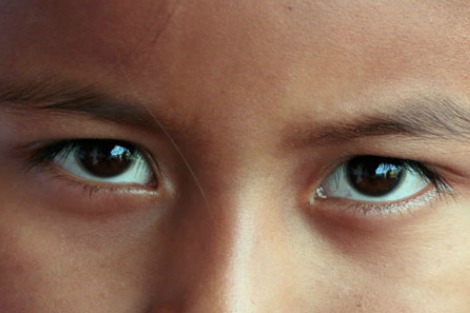
AUSTRALIA
- Andrew Hamilton
- 09 December 2015
11 Comments
Although they can be inconvenient, human rights matter. It is important for nations to recognise them and for citizens to defend them. The survivors of the Second World War who had seen the gross violations of human rights under both Nazi and Communist regimes clearly saw this. These states regarded human rights as a privilege that they could give and take away as they chose. History spells out in the alphabet of gas chambers and gulags what that attitude meant for their subjects.
READ MORE 